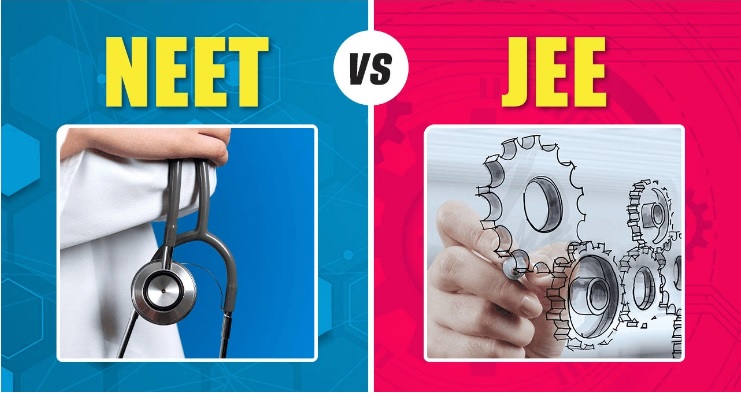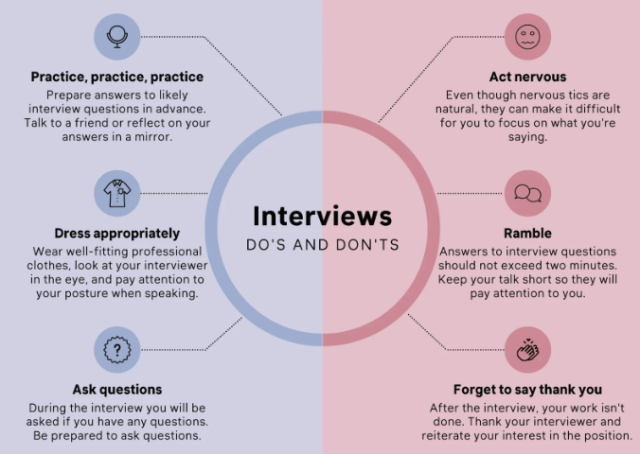The Great Indian Career Dilemma
By: Javid Amin | 10 Aug 2025
Every year, millions of Indian students stand at a crucial crossroads — Medicine or Engineering? NEET or JEE?
These two exams — NEET (National Eligibility cum Entrance Test) and JEE (Joint Entrance Examination) — are among the most prestigious and competitive entrance tests in India. But while they both demand hard work, dedication, and strategy, they test entirely different skill sets.
This guide goes deep into:
-
Exam structure & syllabus comparison
-
Subject difficulty breakdown
-
Competition levels
-
Career outcomes & pressure
-
Preparation strategies
-
Expert verdict: Which is tougher?
By the end, you’ll have a clear picture of which exam might suit you best — and how to tackle it.
Understanding the Exams: NEET and JEE in a Nutshell
What is NEET?
NEET is India’s single national-level medical entrance exam for MBBS, BDS, AYUSH, and other allied medical courses.
-
Conducted by: National Testing Agency (NTA)
-
Mode: Pen and paper (offline)
-
Language: 13 regional languages
-
Aspirants (2024 data): ~20+ lakh
NEET Exam Pattern (2025)
| Section | Questions | Marks | Difficulty Trend |
|---|---|---|---|
| Physics | 50 (45 to attempt) | 180 | Toughest section for most students |
| Chemistry | 50 (45 to attempt) | 180 | Moderate difficulty |
| Biology | 100 (90 to attempt) | 360 | Heavy memorization needed |
What is JEE?
The Joint Entrance Examination is India’s gateway to IITs, NITs, IIITs, and top engineering colleges.
-
Conducted by: NTA (JEE Main) & IITs (JEE Advanced)
-
Mode: Computer-based (online)
-
Aspirants: ~10–12 lakh (JEE Main), ~2 lakh (JEE Advanced)
JEE Main Exam Pattern
| Subject | Questions | Marks | Notes |
|---|---|---|---|
| Physics | 30 | 100 | Conceptual & numerical |
| Chemistry | 30 | 100 | Organic, Inorganic & Physical mix |
| Mathematics | 30 | 100 | High problem-solving demand |
JEE Advanced Exam Pattern
-
Questions vary yearly — focus on multi-step reasoning & tricky problem solving.
-
Difficulty: Significantly higher than JEE Main.
Subject-Wise Difficulty Analysis
01. Physics: The Common Battlefield
Physics is tough in both NEET and JEE, but in different ways:
-
NEET Physics: Mostly NCERT-based, formula application, direct numericals.
-
JEE Physics: Requires deep conceptual understanding, multiple concepts in one question, higher math integration.
Verdict: Physics is conceptually harder in JEE but time-pressured in NEET.
02. Chemistry: The Middle Ground
-
NEET Chemistry: NCERT-focused; Organic and Inorganic demand memory, Physical requires light numericals.
-
JEE Chemistry: Organic & Physical are more application-heavy; Inorganic still demands memorization.
Verdict: Chemistry is balanced in NEET, but application-heavy in JEE.
03. Biology vs Mathematics: The Real Decider
-
NEET Biology: 50% of the paper, almost entirely memory-based from NCERT, with tricky factual details.
-
JEE Mathematics: Abstract problem solving, multi-step calculations, requires daily practice and high logical reasoning.
Verdict: If you hate memorization → NEET Biology is painful. If you fear problem-solving → JEE Maths is your nightmare.
Competition Level: Numbers Don’t Lie
| Factor | NEET | JEE Main | JEE Advanced |
|---|---|---|---|
| Annual Aspirants | 20+ lakh | 10–12 lakh | 2 lakh |
| Seats Available | ~1.1 lakh MBBS | ~40,000 NIT+IIIT+GFTI | ~16,000 IIT |
| Selection Ratio | ~5% | ~20% | ~8% |
| Nature of Competition | Volume-based | Skill-based | Extreme skill-based |
NEET is a war of numbers — huge crowd, limited seats.
JEE Advanced is a war of brains — fewer people, but elite-level problem-solving.
Exam Complexity & Time Pressure
NEET
-
Questions: Mostly straightforward but speed & accuracy critical.
-
Time: 180 questions in 180 minutes = 1 minute per question.
-
Mistakes are costly due to negative marking.
JEE Advanced
-
Questions: Often multi-layered, requiring 5–10 minutes each.
-
Time: Fewer questions, but more mental strain per question.
Career Stakes & Emotional Pressure
NEET:
-
Fewer MBBS seats create huge pressure.
-
Medical career is long (5+ years MBBS + 3 years specialization).
-
Family/social expectations high.
JEE:
-
Broader options: IITs, NITs, private colleges.
-
Engineering allows career flexibility (tech, business, research).
-
Competitive but more fallback options than NEET.
Preparation Strategies: Tailored for Each Exam
NEET Prep Tips
-
NCERT Biology line-by-line.
-
Daily Physics problem-solving.
-
Chemistry NCERT + PYQs.
-
Mock tests every week.
JEE Prep Tips
-
Strong fundamentals in Physics & Maths.
-
Daily problem sets (difficulty progression).
-
Master advanced problem-solving.
-
Past year papers for pattern familiarity.
Expert Verdict: Which is Tougher?
It depends on you.
-
If memorization is your weak spot → JEE might feel easier.
-
If abstract problem-solving scares you → NEET might be better.
-
NEET has more competition volume.
-
JEE Advanced has higher intellectual difficulty.
Final Thoughts
Choosing between NEET and JEE isn’t just about toughness — it’s about where your skills, passion, and patience align. Both require discipline, hard work, and consistency.
Whether you choose medicine or engineering, remember:
-
Your exam doesn’t define your worth.
-
Careers evolve — adaptability is key.
-
The real challenge isn’t cracking the exam — it’s sustaining excellence in your career.




